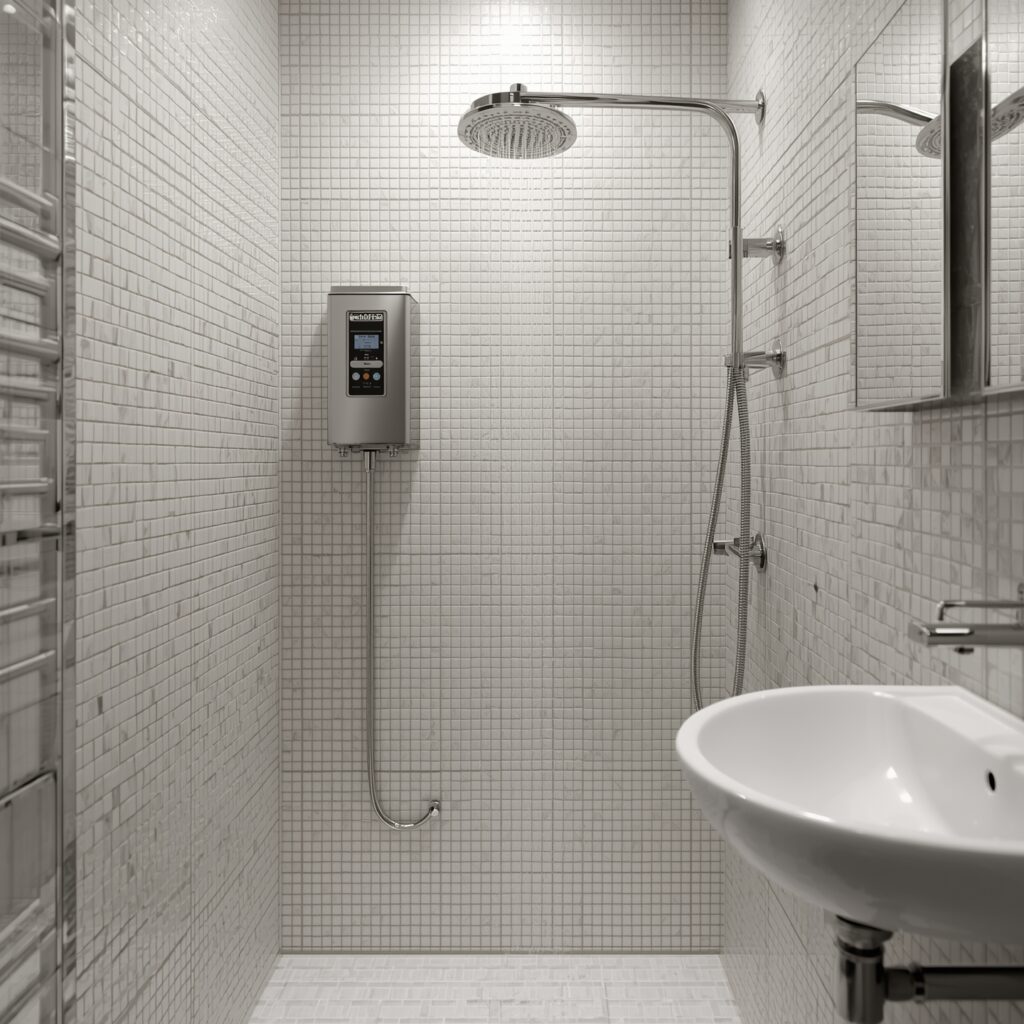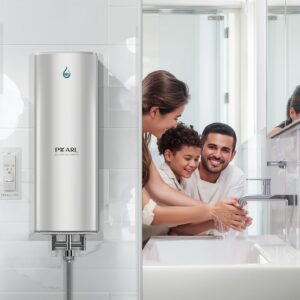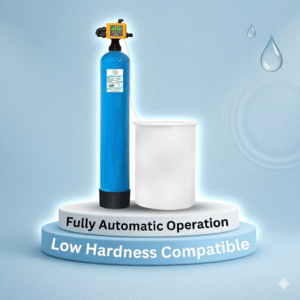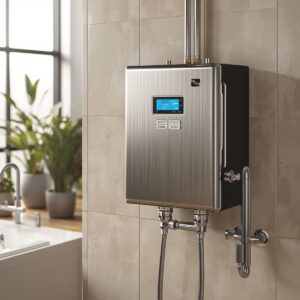Get the best water softener in India with Pearl Water Technologies. Prevent scaling, protect appliances, and enjoy soft water for skin, hair, and home. Affordable prices & nationwide service.
Table of Contents
Introduction
What is Hard Water?
What is a Water Softener?
How Does a Water Softener Work?
Types of Water Softeners in India
Benefits of Using a Water Softener
Applications of Water Softeners
Why Choose Pearl Water Technologies?
Water Softener Price in India
Maintenance & Service Guide
Conclusion
FAQs
Introduction
Water is life, but not all water is the same. Across India, millions of households face the challenge of hard water - water that contains excessive calcium and magnesium minerals. Hard water causes problems like scale deposits in pipes, damage to geysers and washing machines, dull laundry, dry skin, and rough hair.
The most effective solution is a Water Softener, which removes hardness and provides you with fresh, clean, and soft water for everyday use. At Pearl Water Technologies, we design advanced, durable, and cost-effective water softeners suitable for homes, apartments, housing societies, hotels, and industries.
What is Hard Water?
Hard water is water that contains high levels of calcium (Ca²⁺) and magnesium (Mg²⁺) ions. While these minerals are not harmful to health, they cause several practical issues:
Scaling in pipes and appliances (geyser, washing machine, dishwasher)
White spots on utensils and taps
Dry, itchy skin and rough hair
Dull, faded clothes after washing
Reduced efficiency of soaps and detergents
In India, borewell and municipal water sources often have hardness levels between 300–1200 ppm (parts per million), much higher than the safe standard of 200 ppm.
What is a Water Softener?
A water softener is a filtration system that removes hardness minerals (calcium & magnesium) from water through an ion exchange process. This results in soft water, which:
Prevents scaling in plumbing and appliances
Protects your skin, hair, and clothes
Saves energy and maintenance costs
Pearl Water Technologies offers a wide range of softeners starting from 200 LPH to 3000 LPH for both residential and industrial needs.
👉 Explore here: Water Softener by Pearl Water Technologies
How Does a Water Softener Work?
The most common technology used is ion exchange.
Hard water passes through a resin bed.
The resin attracts and holds calcium and magnesium ions.
These hardness ions are exchanged with sodium or potassium ions.
The result is soft water coming out of the softener.
The system undergoes regeneration cycles, where salt or brine is used to recharge the resin bed, ensuring continuous soft water supply.
Types of Water Softeners in India
Automatic Water Softeners
- Fully controlled by a digital valve. Easy to operate, minimal maintenance.
Semi-Automatic Water Softeners
- Economical and suitable for small homes.
Salt-Based Water Softeners
- Most effective, ideal for high hardness levels.
Salt-Free Water Conditioners
- Prevent scaling by crystallizing minerals but do not remove them. Best for areas with mild hardness.
Industrial Water Softeners
- High-capacity softeners (1000 LPH to 10,000 LPH) for hotels, hospitals, factories.
Benefits of Using a Water Softener
✅ Protects Home Appliances - Prevents scale buildup in geysers, washing machines, dishwashers.
✅ Better Skin & Hair Health - Soft water prevents dryness and improves smoothness.
✅ Saves Money - Reduces electricity bills and maintenance costs.
✅ Spot-Free Utensils & Shiny Clothes - Clothes remain bright, utensils stay clear.
✅ Eco-Friendly - Requires less soap, detergent, and shampoo.
✅ Longer Plumbing Life - Prevents blockages and leakage due to scaling.
Applications of Water Softeners
Homes & Apartments - For bathing, cooking, washing.
Housing Societies - Centralized soft water supply for multiple families.
Hotels & Restaurants - Spot-free glassware, fresh laundry, better guest experience.
Hospitals & Laboratories - Protects expensive equipment.
Industries - Prevents scaling in boilers, cooling towers, and RO plants.
Why Choose Pearl Water Technologies?
Wide range of models (200 LPH to 3000 LPH).
Affordable pricing for Indian households.
Trusted by thousands of customers nationwide.
Advanced ion exchange and automatic regeneration systems.
Easy installation and 24×7 customer support.
👉 Buy now: Pearl Water Softener
Water Softener Price in India
The price of a water softener depends on its capacity (LPH) and type (automatic or semi-automatic).
Small Home Models (200–500 LPH): ₹8,000 - ₹20,000
Medium Models (1000–2000 LPH): ₹25,000 - ₹60,000
Large Industrial Softeners (3000+ LPH): ₹70,000+
Pearl Water Technologies provides the best price-to-performance ratio with durable systems and after-sales service.
Maintenance & Service Guide
Refill salt every 2–3 weeks (based on water hardness).
Schedule professional servicing once a year.
Clean the brine tank regularly.
Use original Pearl Water salt tablets and spares for long life.
Conclusion
A water softener is an essential investment for every household and industry in India struggling with hard water. It not only protects your appliances and plumbing but also improves your lifestyle by giving you soft, fresh, and healthy water.
At Pearl Water Technologies, we bring you the best-in-class water softeners at affordable prices with nationwide service support.
👉 Visit now to explore: https://pearlwater.in/water-softeners
FAQs
Q1. How long does a water softener last?
A high-quality Pearl Water softener lasts 10–15 years.
Q2. Can soft water be used for drinking?
Yes, soft water is safe for drinking and daily use.
Q3. How much salt is required?
Typically 1–2 bags (25 kg each) per month depending on usage.
Q4. Does it waste water?
Regeneration uses a small amount of water, but it is negligible compared to savings.
Q5. What is the difference between a filter and a softener?
Filters remove impurities like dust and chlorine, while softeners remove hardness minerals.
Q6. Can I connect it to my bathroom only?
Yes, Pearl Water bathroom softeners are compact and easy to install.
Q7. Is it suitable for borewell water?
Yes, designed for both municipal and borewell sources.



